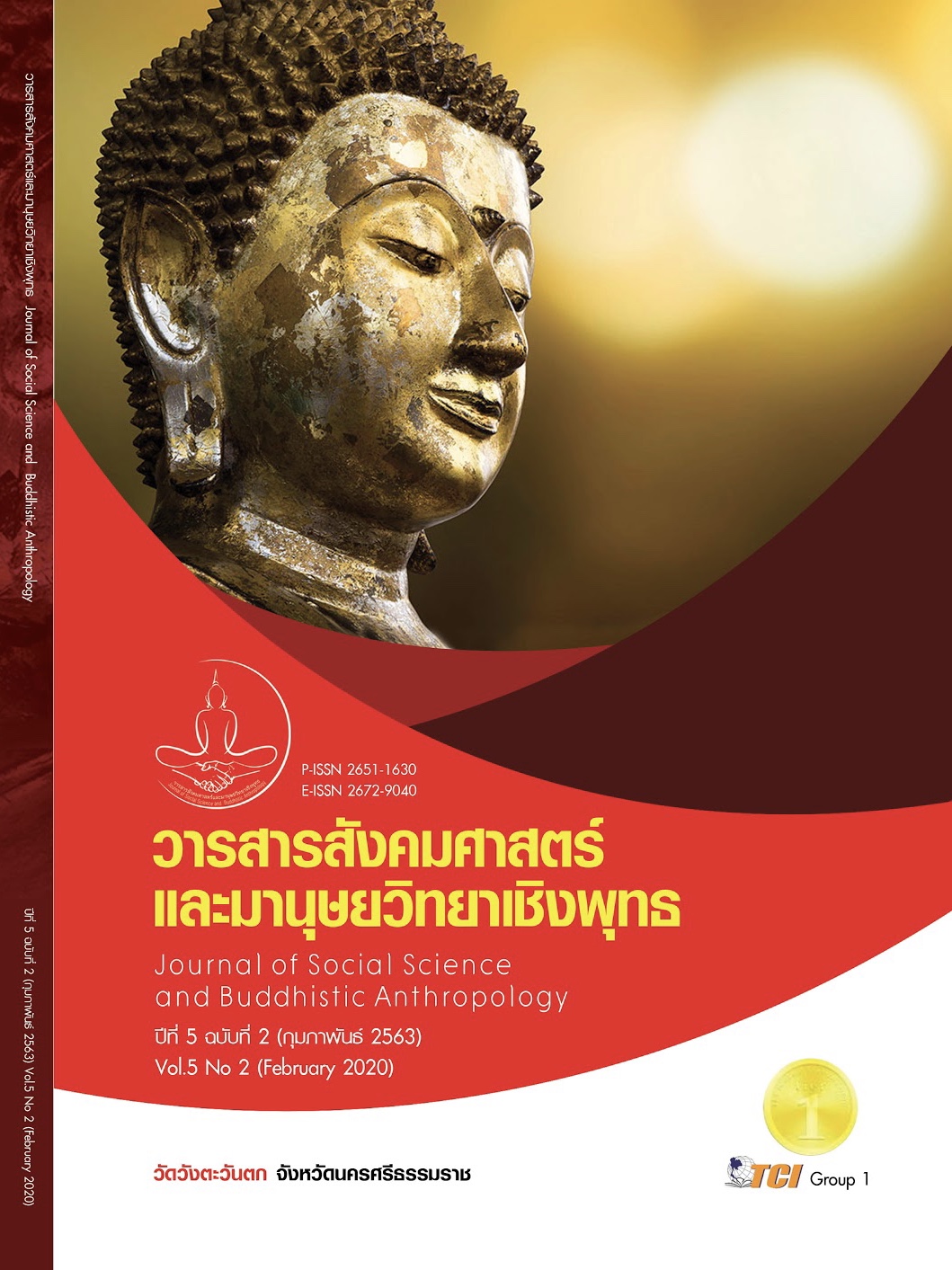THE MODEL OF THE ETHICAL DEVELOPMENT OF PROFESSIONAL ACCOUNTANTS ON THE BUDDHIST INTEGRATION
Keywords:
Ethical Development Model, Professional Accountants, Buddhist IntegrationAbstract
The objectives of the Research paper entitled “The Model of the Ethical development of professional accountants on the Buddhist integration are as follows: 1) to study the ideas of the Ethical development of professional accountants 2) to study the Buddha teachings for ethical development to professional accountants.3) to propose the model of ethical development to professional accountants with the Buddhist integration. This is a qualitative research done by studying documentaries and related research works including the interview of professional were done through the descriptive method.
In the research, it was found that all professional accountants always follow the codes of ethics prescribed by the Federation of Accounting Professions under the Royal Patronage of His Majesty the King while working in collaboration with the international Federation of Accountants Committee (IFAC) on the principles of the codes of professional ethics. In the application of the Buddhist teachings into the empowerment of the professional accountants, the following principles of moral shame and moral dread, of four paths leading to the accomplishment, of four virtues lines for a good household life, and of three kinds of good conduct were brought in as the alternative guidelines for the development of the professional codes of accountants’ ethics.. The research was found that, 3P for career advancement and sustainability in professional Accountants are 1) P = cultivate the first P is to plant knowledge on the accountants’ professional covering and responding to the change of the world through the Buddhist. Cultivated, Sucarita (good conduct), Hiri (moral shame), Ottappa (moral dread). Along with professional accounting principles education, 2) P = Modify Caused while working experience. Used Iddhipàda (the Four Paths of Accomplishment), Gharàvàsa-dhamma (virtues for a good household life), with internal adjustments and External modifications, (Paratoghosa: another's utterance), 3) P = apply. Which uses the additional principles of Buddhism from cultivation and modifications. Sikkhàttaya (the Threefold Learning), Agati) (bias), Saïgahavatthu (four objects of sympathy).
References
กรุงเทพธุรกิจ. (2562). แฉ จนท.บัญชีสหกรณ์ฯ ลำปลายมาศ ยักยอกเงิน 100 ล้าน. เรียกใช้เมื่อ 16 มิถุนายน 2562 จาก https://www.bangkokbiznews.com.
ข้อบังคับสภาวิชาชีพบัญชี ว่าด้วยจรรยาบรรณผู้ประกอบวิชาชีพบัญชี พ.ศ. 2561. (2561). ราชกิจจานุเบกษา เล่ม 135 ตอนพิเศษ 301 ง.
นิพันธ์ เห็นโชคชัยชนะ. (2559). ความหมายและขอบเขตของการบัญชี. วารสารวิชาชีพบัญชี, 12(35), 88–99.
พระพรหมคุณาภรณ์ (ป.อ. ปยุตฺโต). (2546). พจนานุกรมพุทธศาสน์ ฉบับประมวลศัพท์. กรุงเทพมหานคร: สำนักพิมพ์ผลิธัมม์.
พระอธิการภัทรชาพงษ์ สิริภทฺโท. (2560). วิชาชีพการเงินการบัญชีในวิถีทางพระพุทธศาสนา. วารสารบัณฑิตศึกษามหาจุฬาขอนแก่น, 4(1), 84-89.
มหาจุฬาลงกรณราชวิทยาลัย. (2539). พระไตรปิฎกภาษาไทย ฉบับมหาจุฬาลงกรณราชวิทยาลัย. กรุงเทพมหานคร: โรงพิมพ์มหาจุฬาลงกรณราชวิทยาลัย.
ยรรยง ธรรมธัชอารี. (2553). เรียนรู้จากคำศัพท์บัญชี. กรุงเทพมหานคร: สำนักพิมพ์กู๊ดอินเตอร์บุ๊ค.
ราชบัณฑิตยสถาน. (2554). พจนานุกรม ฉบับราชบัณฑิตยสถาน 2554. กรุงเทพมหานคร: สำนักพิมพ์ อักษรเจริญทัศน์.
สิงห์ชัย อรุณวุฒิพงศ์. (2549). แนวทางการปลูกฝังจรรยาบรรณวิชาชีพในประเทศไทย. กรุงเทพมหานคร: มหาวิทยาลัยราชภัฏสวนดุสิต.
เอกพันธ์ ปัดถาวะโร. (2562). จรรยาบรรณวิชาชีพ. เรียกใช้เมื่อ 22 กรกฎาคม 2562 จาก https://aekapan. blogspot.com.









